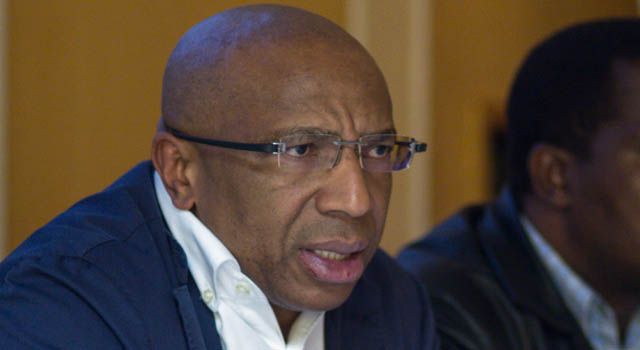
MTN will not get access to Telkom’s valuable chunk of 4G/LTE radio frequency spectrum in the 2,3GHz band. The negotiations between the two companies, in which it is proposed that MTN takes over the financial and operational management of Telkom’s radio access network, specifically excludes this LTE band.
Telkom has access to 60MHz of prime spectrum at 2,3GHz, which can be used to deploy next-generation mobile broadband infrastructure. The 2,3GHz band is used for LTE in key markets such as China and India and, because of this, is regarded as a band that is likely to be widely supported in future by smartphone makers and other device manufacturers.
The 2,3GHz band is well suited to building networks that use a flavour of 4G/LTE known as TD-LTE. Other than China and India, it’s also found favour in Australia, parts of the Middle East and North America.
Vodacom and MTN are both desperate for access to new spectrum — indeed, the former’s offer to buy Neotel is predicated on its being able to get access to additional spectrum to expand its 4G network. To deploy their 4G networks, the two incumbent mobile operators have been forced to “refarm” existing voice spectrum while they wait for access to the 800MHz and 2,6GHz bands. These two bands will eventually be set aside for wireless broadband, but government has dragged its feet for years in formulating the policy that will allow communications regulator Icasa to allocate access.
Despite this, Telkom CEO Sipho Maseko tells TechCentral that his company’s talks with MTN do not include the 2,3GHz band. The only spectrum affected under the proposed deal, he says, is Telkom’s allocation in the 1,8GHz and 2,1GHz bands.
In March, the companies confirmed that they were in talks, but cautioned that the discussions were subject to the conclusion of a number of commercial agreements. Other than the proposal that MTN manages Telkom’s radio access network, it’s also expected that each company will be able to roam on the other’s network.
Until now, the two have had an agreement under which Telkom paid MTN to roam on the latter’s 2G and 3G voice and data networks. “The conclusion of an agreement will allow us to expand our mobile coverage and reduce our operating costs and capital expenditure significantly,” Maseko said at the time. Telkom has said it needs to reduce the costs associated with building South Africa’s fourth mobile network operator significantly to offset losses.
But will MTN and Telkom be allowed to share spectrum under current legislation? “What is clear is that either consolidation or collaboration in the sector is necessary,” says Maseko, adding that Telkom has been keeping Icasa apprised of the negotiations.
“We have been meeting with Icasa and articulating about how we are thinking about this. We will keep our spectrum and we will keep our equipment and towers. MTN will do the same. So, essentially we are just asking MTN to manage it on our behalf.”
Telkom acting chief financial officer Deon Fredericks says these sorts of deals have to happen to avoid telecoms players going to the wall. “If you don’t have consolidation, you will have significant problems down the line, with companies going bust,” Fredericks says.

Telkom has also made an offer — its second in eight years — to buy listed IT services group Business Connexion.
In line with Telkom’s view that consolidation is necessary, Maseko says the operator won’t automatically seek to have Vodacom’s proposed R7bn acquisition of Neotel blocked by the competition authorities.
“We haven’t seen what that deal actually looks like, and they would need to give us notice in terms of their intentions — and we would need to study that — but consolidation in the industry is happening and will happen. You can’t be emotional about it. You have to study exactly what the intentions might be so that you are thoughtful of what you are supporting or opposing,” he says.
“We won’t just have a negative view on consolidation as a principle. The sector is going through a lot of change and we are trying to take a practical and common-sense approach to it.” — © 2014 NewsCentral Media




